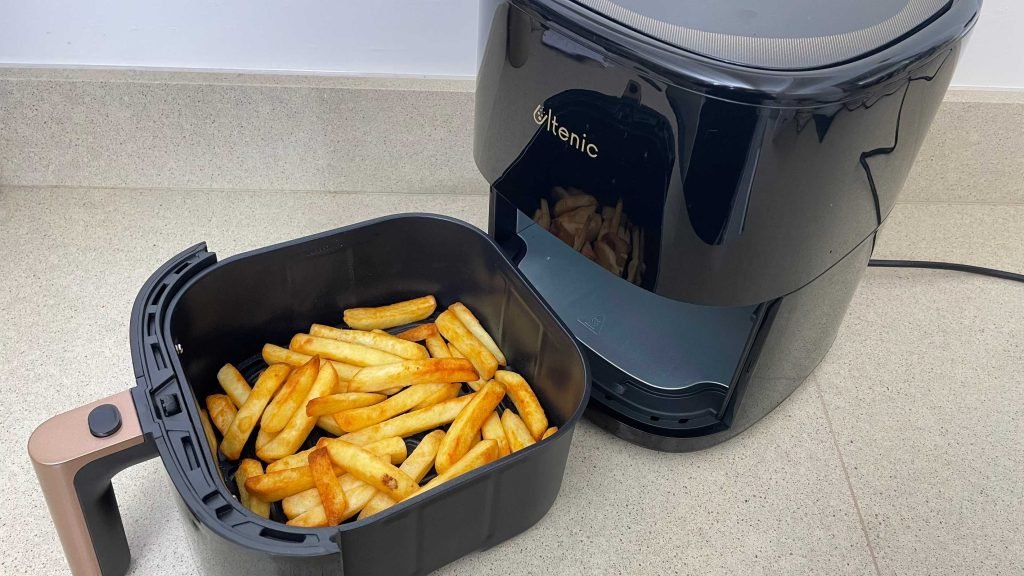Yes, air fryers do use a noticeable amount of electricity, but they are generally energy-efficient compared to traditional ovens. Using an air fryer for quick meals can save energy and time, making it a convenient kitchen gadget. While they do consume electricity, their rapid cooking times mean they often use less overall energy than larger appliances.
Air fryers have become popular for their ability to create crispy, delicious dishes with less oil, but many wonder if they ramp up their electricity bills. The reality is that air fryers are relatively energy-efficient because they heat up quickly and cook faster, reducing overall power consumption. If you’re mindful of usage, they can be an economical choice for everyday cooking, offering convenience without significantly impacting your electricity costs. Understanding how they work and their energy consumption can help you decide if they are a good fit for your kitchen.
Do Air Fryers Use a Lot of Electricity?
Understanding How Air Fryers Work
Air fryers heat up quickly because they use a heating element combined with a high-speed fan. This fan circulates hot air around the food, cooking it evenly and creating a crispy texture. Since they rely on electricity to generate heat and power the fan, it’s natural to question their energy consumption.
Average Power Consumption of Air Fryers
Most air fryers operate at wattages ranging from 800 to 1500 watts. For example, a typical unit might use around 1400 watts during operation. This means that the amount of electricity they consume depends largely on how long they are used each day.
How to Calculate Electricity Usage
You can estimate the energy used by your air fryer with this simple formula:
- Energy (kWh) = Power (kW) x Time (hours)
For instance, if you use a 1400-watt air fryer for 30 minutes, that translates to:
- 0.014 kW x 0.5 hours = 0.007 kWh of electricity.
Understanding this helps you compare the energy costs with other kitchen appliances.
Energy Consumption Compared to Conventional Ovens
Compared to traditional ovens, air fryers usually consume less electricity because they cook faster and operate at higher temperatures. An oven may use between 2000 to 5000 watts, but often for a longer period. Therefore, air fryers tend to be more energy-efficient for small, quick meals.
Factors That Affect Electricity Usage
Several factors influence how much electricity your air fryer uses:
- Duration of use: Longer cooking times increase energy consumption.
- Model efficiency: Newer models often incorporate better insulation and energy-saving features.
- Cooking temperature: Higher temperatures may require more power initially but can reduce overall cooking time.
- Food quantity: Larger quantities may require longer cooking times, increasing energy use.
Being mindful of these factors can help you manage your energy consumption effectively.
Tips to Reduce Energy Consumption When Using an Air Fryer
To save electricity while enjoying the benefits of an air fryer, consider these tips:
- Preheat your air fryer only when necessary.
- Cook similar items together to maximize efficiency.
- Use the appropriate temperature and time settings to avoid overcooking.
- Regularly clean your air fryer to ensure optimal performance.
Implementing these habits can cut down on unnecessary energy use.
Related Topics: Cost Comparisons and Environmental Impact
Cost Savings with Air Fryers
Using an air fryer can potentially save you money on energy bills compared to using a conventional oven or deep fryer. Since they cook faster and consume less power, the monthly electricity costs are generally lower.
Environmental Considerations
Lower energy consumption means a reduced carbon footprint, making air fryers a more environmentally friendly choice. Choosing energy-efficient models with ENERGY STAR ratings further enhances these benefits.
Are Air Fryers Energy Efficient?
Many modern air fryers are designed with energy efficiency in mind. Features like rapid preheating, digital timers, and adjustable temperature controls help optimize power use. Overall, they are considered a more sustainable option for quick cooking needs.
While air fryers do use electricity, they tend to be more energy-efficient than traditional cooking appliances. Their quick cooking times and lower wattage mean they typically consume less power for smaller meals. By understanding how they work and adopting energy-saving habits, you can enjoy delicious food without significantly impacting your electricity bill.
Air Fryer vs. Oven: Which Saves More Money on Energy Bills? – Which?
Frequently Asked Questions
How much energy does an air fryer typically consume during use?
Air fryers generally consume between 1,200 and 1,700 watts while operating. The exact energy usage depends on the model, cooking time, and temperature settings. Since they cook food quickly, their overall energy consumption tends to be lower than traditional ovens, making them an energy-efficient choice for many households.
Does using an air fryer significantly increase my electricity bill?
Using an air fryer for typical meals usually results in a modest increase in your electricity bill. Because they cook faster and require less energy than conventional ovens, the additional cost remains minimal. If you cook frequently with an air fryer, it can still be cost-effective due to reduced cooking times and energy requirements.
Can I reduce energy consumption when using an air fryer?
Yes, you can lower energy use by preparing smaller quantities of food that fit well within the air fryer’s capacity. Preheating the device only when necessary and cooking at the optimal temperature can also help save energy. Additionally, avoiding opening the basket frequently during cooking preserves heat, decreasing cooking time and energy consumption.
Are there features in modern air fryers that help save electricity?
Many newer air fryer models include features like automatic shut-off, temperature sensors, and efficient heating elements. These features help regulate power consumption, prevent overuse, and optimize cooking times, ultimately reducing the amount of electricity used during each session.
How does the size of the air fryer influence its energy consumption?
Larger air fryers require more power to operate because they have bigger heating elements and fans. Smaller models use less energy due to their reduced size and power needs. Choosing an appropriately sized air fryer for your household can help minimize unnecessary energy use while still meeting your cooking needs.
Final Thoughts
Air fryers are energy-efficient kitchen appliances that use less electricity compared to traditional ovens. They heat up quickly and cook food faster, reducing overall energy consumption.
Do air fryers use a lot of electricity? Generally, no. Their smaller size and rapid cooking times help save electricity, making them a practical choice for daily use.
In summary, air fryers do not use a lot of electricity and can effectively cut down energy bills. They are a convenient, cost-effective addition to any kitchen.
As an Amazon Associate, We earn from qualifying purchases. When you purchase a product through Amazon links on kitchenadvising.com, we may earn a small commission at no extra cost to you. This helps support the site and keep our content free.


